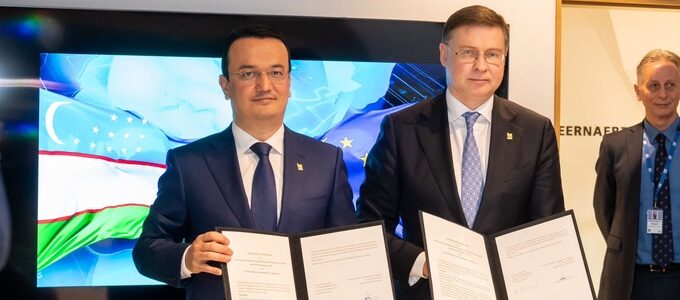
On April 5, Uzbekistan and the European Union signed a memorandum of understanding that launched a strategic partnership to develop sustainable value chains in the field of critical raw materials.
The memorandum was visualized in Belgium by Laziz Kudratov, Minister of Investment, Industry and Trade of Uzbekistan, and Valdis Dombrovskis, Executive Vice President of the European Commission.
The EU notes that Uzbekistan has the second largest reserves of critical raw materials in Central Asia: copper, molybdenum and gold.
“This agreement marks a significant step towards securing diversified and sustainable supplies of critical raw materials for the transition to green and digital technologies, both in the European Union and in Uzbekistan,” the statement said.
Critical raw materials are minerals that are of great economic importance to the European Union. Such raw materials include 34 types of metals, minerals and other natural materials, 17 of which are strategically important: copper, lithium, aluminum, titanium, platinum, graphite, nickel, cobalt and others.
The strategic partnership, according to the memorandum, focuses on the following areas of cooperation:
Integration of sustainable value chains for critical raw materials, including through networking, pre-qualification of project proposals, joint project development, and promotion and facilitation of trade and investment links along the entire value chain;
Increasing the supply of critical raw materials and establishing a dialogue to increase transparency in investment, operations, and exports;
Attracting financing for projects implemented under the partnership, as well as developing clean energy supply, but not limited to;
Cooperation in the field of research and innovation, including the exchange of knowledge and technology related to sustainable exploration, production, processing and reuse of critical raw materials, etc.
“This agreement with natural resource-rich Uzbekistan will help the EU secure much-needed access to critical raw materials. For Uzbekistan, this will be a major boost to its ambitions to diversify its economy and sustainably develop its extractive industry,” said Valdis Dombrovskis.
The partnership is in line with the Global Gateway strategy, the EU’s key initiative to invest in sustainable projects around the world, taking into account the needs of partner countries and providing long-term benefits to them, through which the EU will mobilize up to €300 billion by 2027.
The next step after the signing of the memorandum will be the joint work of the European Union and Uzbekistan to create an operational roadmap with concrete actions.